When working with electronic circuits, you might wonder, Can current flow through a capacitor? The simple answer is that while capacitors don’t allow direct current (DC) to flow through, they play a crucial role in alternating current (AC) circuits. Understanding how capacitors store and release energy helps you grasp their importance in powering and protecting devices.
Ready to explore Can Current Flow Through a Capacitor? Let us guide you with the best capacitors for your projects!
What is a Capacitor?
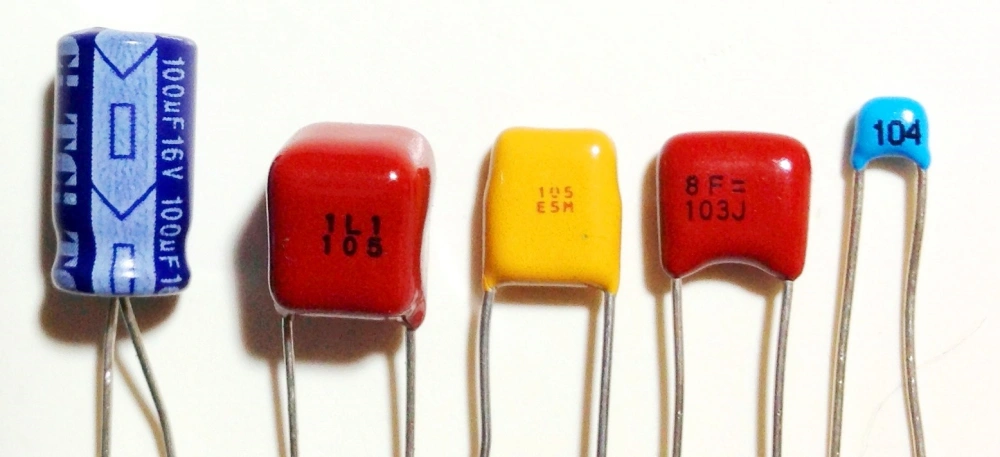
A capacitor is an electronic component that stores electrical energy in an electric field. It consists of two conductive plates separated by an insulating material, called a dielectric. Capacitors are vital for managing electrical flow in circuits by temporarily storing and releasing energy.
You might ask, Can current flow through a capacitor? The answer depends on the type of current. While capacitors block direct current (DC) from flowing through them, they allow alternating current (AC) to pass by charging and discharging.
Capacitors are essential in electronic circuits, smoothing power supplies, filtering signals, and enabling energy storage. They are used in everything from your smartphone to power grids, making them crucial for modern electronics.
Capacitor Functionality
Capacitors Store Energy in an Electric Field
A capacitor consists of two conductive plates separated by an insulating material, called a dielectric. When a voltage is applied, electrical energy accumulates on the plates, creating an electric field. This stored energy can be quickly released when needed, making capacitors essential for energy storage and smooth operation in electronic circuits.
Capacitors Accumulate Charge, Block DC Flow
When connected to a DC source, capacitors allow charge to build up on their plates until they are fully charged. Once the capacitor is charged, it prevents any further DC flow. This ability to store and hold energy while blocking continuous DC current is crucial for stabilizing voltage in power supplies and filtering signals.
Why Capacitors Block DC and Allow AC
Capacitors block DC current because once they are charged, no more charge can accumulate, effectively stopping the flow of direct current. However, with AC, the current changes direction continuously, allowing the capacitor to charge and discharge repeatedly. This allows capacitors to pass AC, making them indispensable in signal processing, filtering, and noise reduction.
Can Current Flow Through a Capacitor
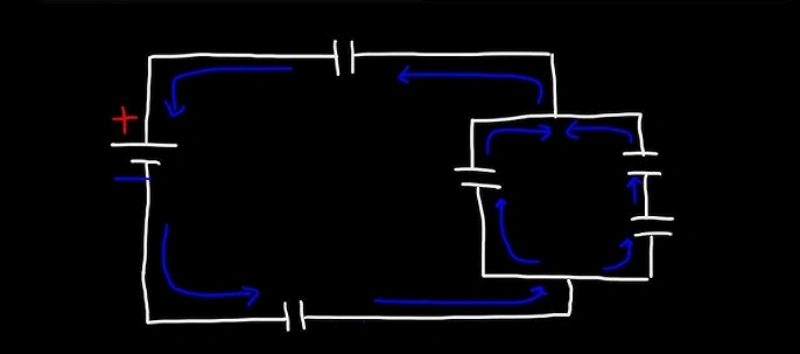
How Capacitors Block DC?
Capacitors block direct current (DC) because they store charge and create an insulating barrier. When DC voltage is applied, the capacitor charges up to the applied voltage level, preventing current from flowing through it. Once fully charged, the capacitor acts as an open circuit, stopping further DC current flow.
Capacitors Allow AC by Charging and Discharging
Capacitors can pass alternating current (AC) because the voltage across them changes continuously. As AC voltage fluctuates, the capacitor charges and discharges rapidly, allowing current to flow in a back-and-forth motion. This dynamic process enables capacitors to filter or smooth AC signals effectively, making them essential in many electrical circuits.
Current Doesn’t Flow Through, It Charges the Capacitor
Current does not flow through a capacitor in the traditional sense. Instead, it charges and stores energy on the capacitor’s plates. As the capacitor charges, the current gradually decreases until the capacitor is fully charged. The key to a capacitor’s function is its ability to accumulate and release electrical energy, not direct current flow through the device.
Can Current Flow Through a Capacitor: Capacitors in AC Circuits
Capacitor Behavior in AC Circuits
In AC circuits, capacitors exhibit dynamic behavior. Unlike DC circuits, where current eventually stops flowing, AC continuously charges and discharges the capacitor. This constant change in polarity allows the capacitor to pass alternating current while blocking direct current. Capacitors can filter and control the current flow, ensuring smooth operation in AC power systems and maintaining stability in the circuit.
Charging Phase and Current Flow in Capacitors
When an AC voltage is applied, the capacitor begins to charge in one direction and then discharges in the opposite direction as the polarity changes. This results in a fluctuating current flow through the capacitor. The capacitor’s ability to charge and discharge rapidly in response to the alternating voltage ensures it keeps up with the changing current.
The phase shift between voltage and current is a key characteristic of capacitors in AC circuits.
Capacitors for Voltage Smoothing in AC Circuits
Capacitors are crucial for voltage smoothing in AC circuits. They help eliminate voltage spikes and fluctuations, providing a more consistent and reliable voltage supply. By storing energy during high voltage phases and releasing it during low voltage phases, capacitors maintain a steady voltage level, reducing noise and ensuring efficient power delivery.
This makes them essential for smooth operation in everything from power supplies to signal processing.
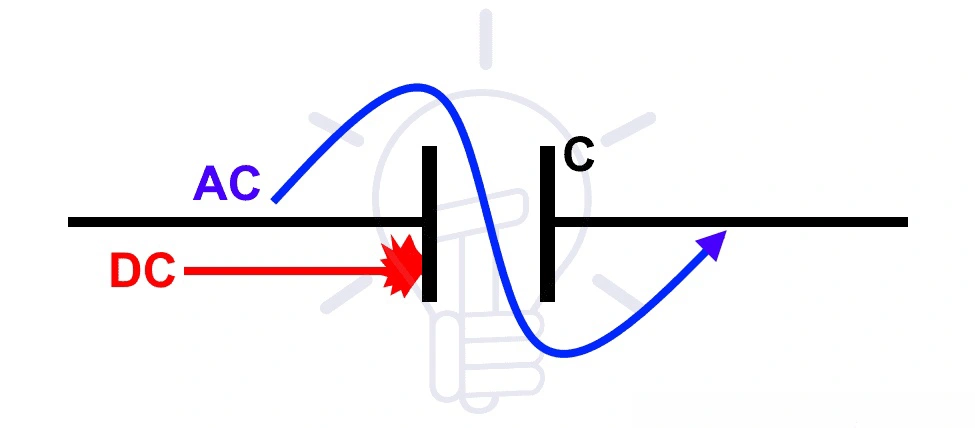
Can Current Flow Through a Capacitor: Capacitors in DC Circuits
Capacitors in DC Circuits
Capacitors play a vital role in DC circuits by storing and releasing energy. Initially, when connected to a DC source, a capacitor remains uncharged, but as time passes, current flows into it. The capacitor charges up to the supply voltage, blocking direct current once fully charged. This behavior makes capacitors ideal for regulating voltage in various DC applications, providing stability and energy storage.
Capacitor Charging Dynamics
When a capacitor is connected to a DC voltage source, current flows to charge the capacitor until it reaches the voltage of the source. The charging process follows an exponential curve, with the current decreasing over time as the capacitor fills. This gradual charging ensures smooth energy storage, and once the capacitor is fully charged, it behaves like an open circuit, preventing further current flow.
DC Voltage Smoothing with Capacitors
Capacitors help smooth out fluctuations in DC voltage, acting as filters in power supplies. When used in rectified DC circuits, they reduce ripples by temporarily storing charge and releasing it during voltage dips. This smoothing effect ensures a more stable and consistent voltage, improving the performance of sensitive electronic devices. Capacitors thus help maintain steady power for efficient circuit operation.
Can Current Flow Through a Capacitor: Key Applications
Signal Filtering
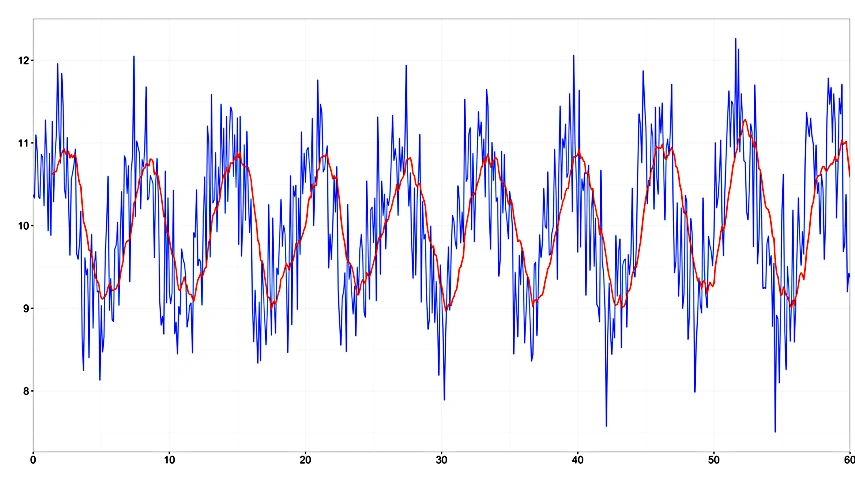
Capacitors are essential in signal filtering, removing unwanted noise from electrical signals. They allow alternating current (AC) signals to pass while blocking direct current (DC). This makes them ideal for smoothing audio, video, or radio signals, ensuring clarity. In communication systems, capacitors effectively filter high-frequency noise, improving signal quality and protecting sensitive electronics from interference.
Power Smoothing
Capacitors play a critical role in power smoothing. They stabilize voltage levels by absorbing voltage spikes and releasing charge during drops. This ability to smooth out fluctuations is crucial in DC circuits, especially in power supplies. Capacitors ensure devices receive a constant and reliable voltage, preventing damage and improving performance by keeping the power steady and smooth.
Energy Storage
Capacitors act as efficient energy storage devices, quickly storing and discharging electrical energy. They store energy in an electric field when charged and release it when needed. Unlike batteries, capacitors discharge energy almost instantly, making them useful in applications that require rapid power bursts, such as in camera flashes or certain industrial machines. Their quick discharge capability makes them ideal for short-term energy storage.
Power Supplies and Radios
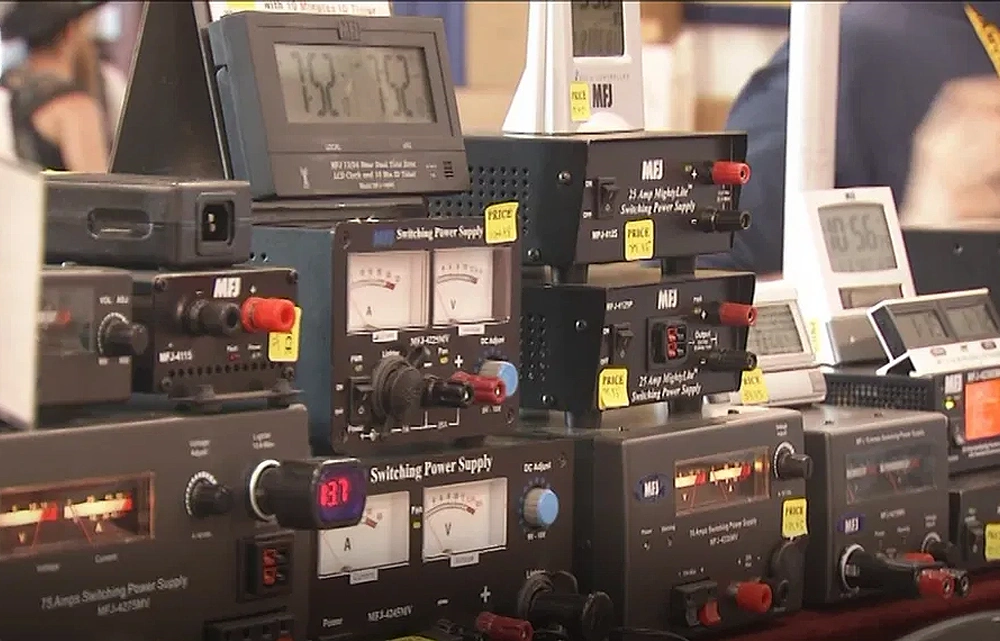
Capacitors are key components in power supplies and radios. In power supplies, they filter the incoming AC to provide smooth DC power to electronic circuits. In radios, capacitors tune circuits to the right frequency, enabling clear reception. Capacitors ensure stable operation by regulating voltage and filtering out noise, making them indispensable in both power supply systems and communication devices like radios.
Conlusion
So, can current flow through a capacitor?The answer is yes. But only under specific conditions. Initially, current flows to charge the capacitor, but once charged, the capacitor blocks further current in DC circuits. However, in AC circuits, current continuously flows as the capacitor alternates between charging and discharging.
Capacitors are powerful components in various applications like signal filtering, power smoothing, and energy storage. Their ability to store and release energy makes them essential for stable, efficient performance in countless electronic devices.
Interested in can current flow through a capacitor? Explore wide selection of capacitors from weishi and find the perfect solution to meet your needs today!
FAQ
Can DC current flow through a capacitor?
No, DC current does not flow through a capacitor once it is fully charged. In a DC circuit, when a capacitor is first connected, it charges up to the supply voltage. After that, it behaves like an open circuit, blocking any further DC current from flowing.
Why does current not flow through a capacitor?
Current does not flow through a capacitor in a steady state because a capacitor stores energy in an electric field. Once charged, the dielectric material between the plates prevents further current flow. Capacitors allow current only during the charging and discharging phases, but not when fully charged in a DC circuit.
Can an electric current flow through an ideal capacitor?
In an ideal capacitor, an electric current does not flow through the capacitor in the conventional sense. Instead, current flows to charge or discharge the capacitor. During charging, current flows into the capacitor, but once it is fully charged, the current stops as the ideal capacitor has no resistance or leakage.
Which current flows through a capacitor?
Capacitors allow alternating current (AC) to flow through them. In an AC circuit, the voltage across the capacitor keeps changing, causing the capacitor to constantly charge and discharge. This process allows current to flow back and forth, even though the capacitor does not conduct current in the traditional sense.
Why does the capacitor allow only AC?
Capacitors allow AC to pass because the voltage across them continuously changes in an AC circuit, causing them to charge and discharge. In contrast, DC voltage remains constant, so once a capacitor is fully charged, it blocks any further DC current. AC, however, keeps the capacitor active by reversing polarity, allowing current to flow in both directions.